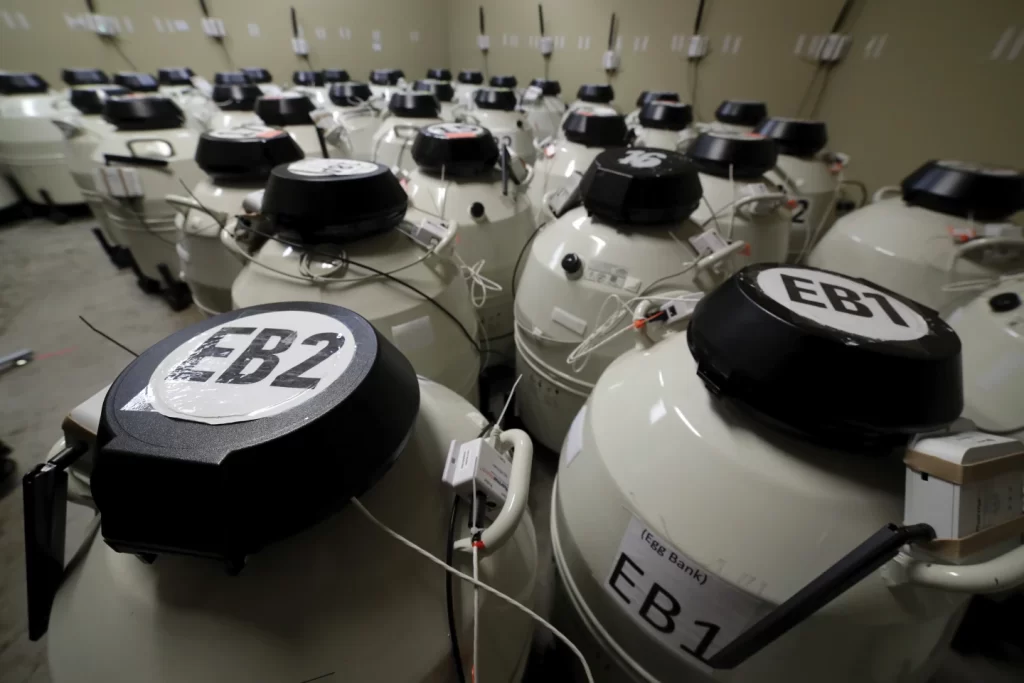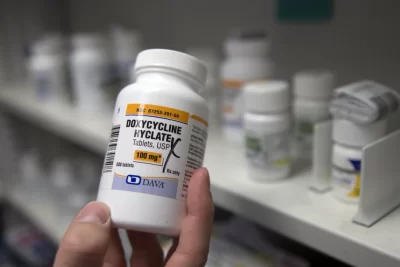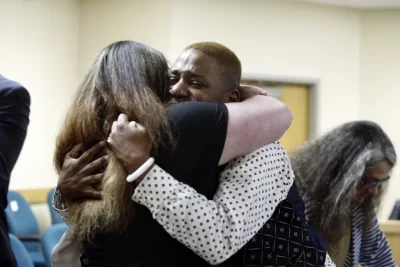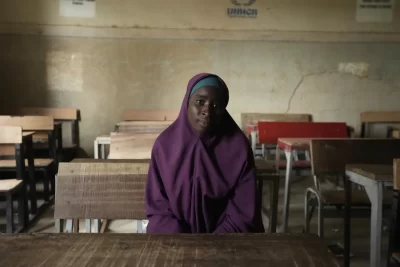
Thirty-seven-year-old Corinn O’Brien is about two months pregnant through in vitro fertilization, but an ultrasound recently showed the fetus might be in trouble, and she wants the option to try again if she needs to.
Cancer survivor Kailani Greenwood, due to give birth in spring after undergoing IVF, hopes to have more children in the future and has four frozen embryos in storage.
But the Alabama women who represent two groups most likely to turn to IVF to build the families they desperately want — women over 35 and those with serious diseases — worry about whether those options will be there when they need them. O’Brien and Greenwood are among the many whose dreams are in limbo after three of Alabama’s largest clinics paused IVF services in the wake of a state Supreme Court ruling that described frozen embryos as “extrauterine children.”
“It’s been hard,” O’Brien said, her voice breaking. “I have no idea what will happen next, and that’s really scary.”
An estimated 1 in 6 people are affected by infertility worldwide. In the U.S., women increasingly delay motherhood even though fertility gradually declines after age 30, particularly after 35. That raises the need for treatments like IVF. Women 35 to 44 are more than twice as likely as younger women to say they’ve used fertility services, according to a 2023 Pew Research Center survey.
Besides the growing ranks of older patients, doctors point to a smaller but significant number of women facing treatment for conditions such as cancer, lupus and sickle cell disease who want to preserve their fertility.
In Alabama, doctors say many of these women are in a holding pattern or seeking help outside the state. Some are also pushing for a legislative solution, and on Tuesday, committees in the state House and Senate advanced legislation that would shield clinics from prosecution and civil lawsuits. Lawmakers hope to get the measures to the governor this week.
But some doctors and patients worry they won’t go far enough — and that legislation or court rulings in other states could eventually put IVF at risk more broadly.
Dr. Beth Malizia, Greenwood’s doctor at Alabama Fertility, a clinic that paused services, said the upheaval has made life even tougher for women who are already struggling.
“Look, nobody wants to be in our clinic. … No one chooses fertility issues. No one chooses cancer. No one chooses recurrent pregnancy loss,” she said. “We’re trying to provide the best care that we can, and this decision has really limited us in our ability to do that. We just want to grow families.”
DREAMS INTERRUPTED
After losing her mother to pancreatic cancer and having no brothers or sisters to turn to, O’Brien realized how important it was for her young daughter “to have a sibling, to navigate life with after we’re gone.”
The Birmingham woman and her husband had tried for a baby for a few years, and she suffered through a dangerous, nonviable ectopic pregnancy. She tried various fertility treatments before starting IVF. Ten eggs were retrieved in October, and three were fertilized and frozen. Her doctor transferred one of the embryos into her womb in late January and she became pregnant. But the same day the court ruling came down, an ultrasound showed problems with the fetal heartbeat.
“It was kind of a double punch — like, this might not work and you might not have access to IVF,” she said.
For Greenwood, IVF is the only way she can have children.
The 31-year-old Montgomery woman was diagnosed with Hodgkin’s lymphoma 11 years ago. She went into remission after chemotherapy, but the cancer returned when she was 25. The ensuing radiation, chemotherapy and stem cell transplant led to infertility. So she had her eggs harvested and frozen.
Being a mom “is something I’ve always dreamed about my whole life,” she said.
Last year, Greenwood became pregnant with her little girl through an embryo transfer and is now in her third trimester. She doesn’t want to stop at one child, though. “I definitely want at least two, if not more,” she said.







